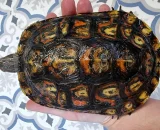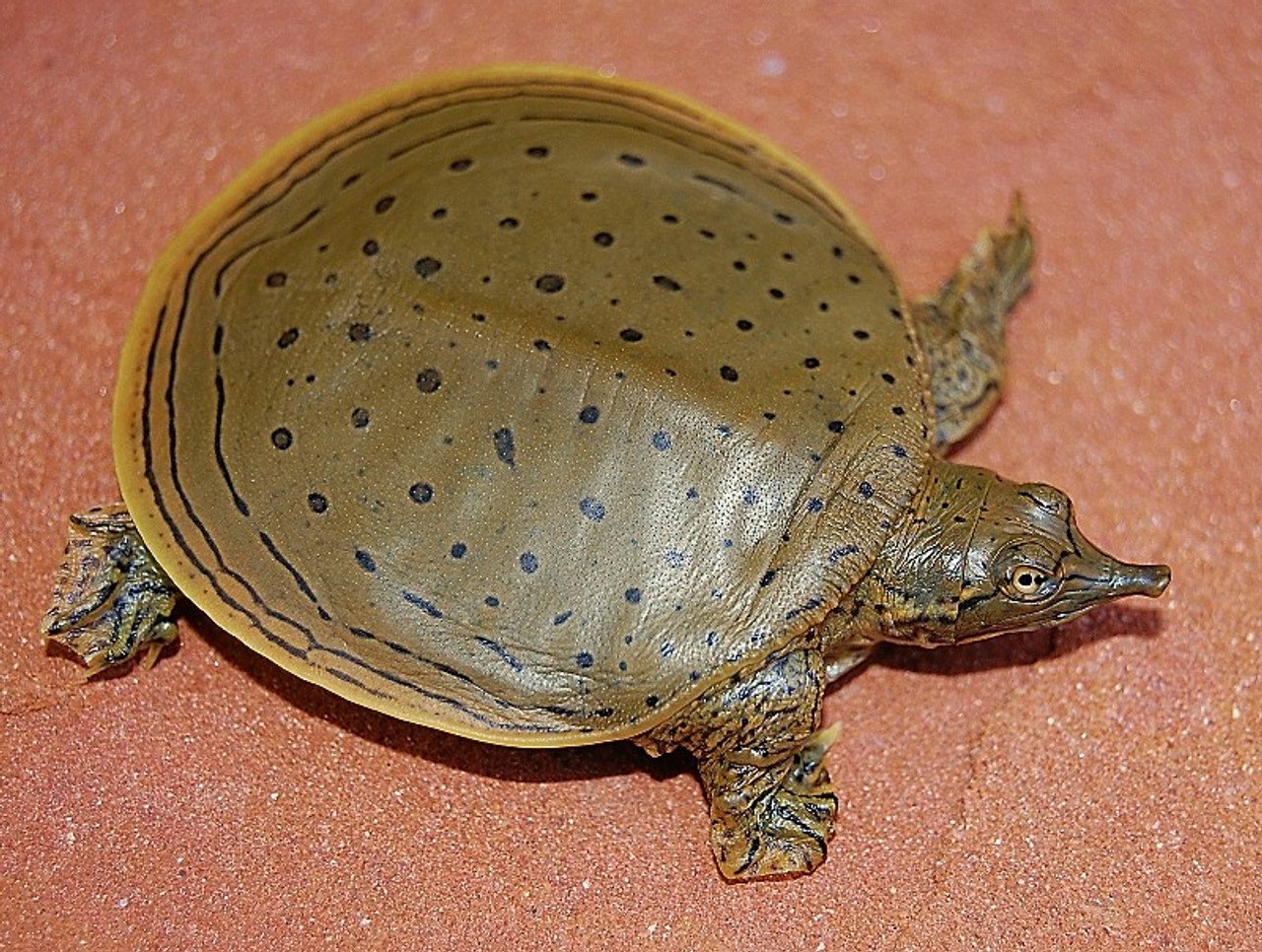- You have no items in your shopping cart
- Subtotal: $0.00
The fascinating and distinctive Spiny Softshell Turtle is an intriguing pet. However, caring for this turtle properly necessitates a sizable commitment and a thorough comprehension of its requirements. Everything you need to know about taking care of a Spiny Softshell Turtle, including its habitat, diet, health, and behavior, will be covered in this book.
Habitat:
The semi-aquatic environment that comprises both land and water is necessary for the survival of spiny softshell turtles. The enclosure must have a minimum water depth of 18 inches and dimensions of four feet long by two feet wide. The land should be dry and offer cover in the form of plants, logs, and rocks. A temperature of about 75 to 80 degrees Fahrenheit should be maintained for the water in order to keep it clean.
Diet:
Shell with Spines Being omnivores, turtles need a balanced diet that contains both plant and animal stuff. Give turtles commercial turtle food as a base and add live or frozen insects like crickets and mealworms and tiny fish like minnows as a supplement. They also like leafy greens, strawberries, and bananas as well as other fruits and vegetables.
Health:
Shell with Spines Respiratory infections and shell rot are only two health issues that turtles are susceptible to. Regular veterinarian care must be given, and a clean, sanitary environment must be maintained. Every day, remove waste and uneaten food from the enclosure.
Behavior:
Shell with Spines Turtles enjoys lounging in the sun and exploring their surroundings. They are curious and active animals. They are easily stressed, therefore it’s crucial to avoid handling them too much and give them lots of hiding spots in their cage. When threatened, they are also renowned for being able to bury themselves in mud or sand.
Overall, taking care of a Spiny Softshell Turtle demands a serious commitment and familiarity with their particular requirements. Your Spiny Softshell Turtle can thrive and live a long, healthy life if you provide it with a carefully managed environment, a balanced diet, and regular medical treatment.
It’s critical to purchase from a reputable breeder or adopt from a rescue group when considering a Spiny Softshell Turtle as a pet. Avoid buying turtles that were taken in the wild since they are frequently under stress and could be sick. Look for turtles with smooth shells, clean eyes, and a healthy appearance.
In conclusion, the intriguing Spiny Softshell Turtle is a species that can make a delightful companion for individuals prepared to dedicate themselves to their upkeep. You can take pleasure in the beauty and distinctive personality of this lovely turtle for many years to come by adhering to the advice provided in this guide and giving them a properly managed environment.
Care: Preserving Spiny Softshell Turtles need care and commitment if they are to have a long and healthy life. Here is some important maintenance advice:
Provide a semi-aquatic enclosure with both land and water regions for the habitat. The enclosure should include enough space for the turtle to walk around unrestrictedly and conceal areas like plants, rocks, and logs. Make sure the water is pure and filtered, and keep the temperature between 75 and 80 degrees Fahrenheit.
Diet: Provide a balanced diet with both plant and animal products. Commercial turtle food can be used as a base, and tiny fish like minnows and live or frozen insects like crickets and mealworms can be added as supplements. Strawberries, bananas, and leafy greens are just a few examples of the fruits and vegetables they like.
Health: Arrange routine veterinarian examinations and keep your surroundings tidy and sanitary. Daily feces and uneaten food should be removed, and disease symptoms like lethargy, loss of appetite, or strange behavior should be watched for.
Reduce handling as much as possible and offer lots of places to hide to lessen stress. Both the land and the water parts of the enclosure should provide spaces for basking. Be aware of any changes in their behavior that might point to a health issue.
Adoption: To make sure the turtle is healthy and free from disease, choose a reputable breeder or adopt from a rescue group. Avoid buying turtles that were taken in the wild since they may not adapt well to captivity and may contain diseases.
These care instructions will help you give your Spiny Softshell Turtle a flourishing and enriching habitat so it can live a long and happy life.








Customer reviews
Reviews
There are no reviews yet.
Write a customer review